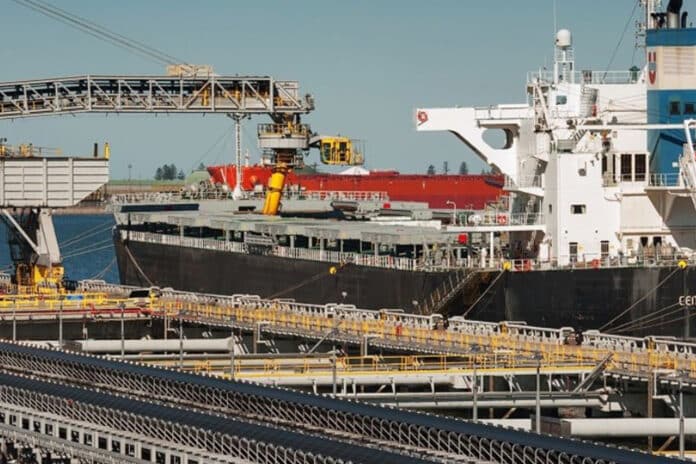With the end in sight for UK coal for UK steam, heritage railways turn their sights overseas for continued supplies of coal.
The UK’s heritage railways have been forced to accept that the battle for continued domestic coal supplies is lost. Stocks from now-closed mines will soon be exhausted. The last mine producing steam coal is scheduled to close.
The Heritage Railway Association (HRA) says in spite of government support for the continued burning of coal by heritage steam operators, policy elsewhere is acting decisively against the opening of new mines. That means UK-produced coal for the nation’s much loved steam railways will run out in early 2022.
“Over the past five years every planning application for a new mine which could have produced the kind of coal we need has been refused,” said Steve Oates, Chief Executive of the HRA. “There are some limited stocks in reserve, and the last producing mine in the UK, Ffos-y-fran in South Wales, will close in early 2022. After that, unless we find an alternative source of supply, heritage railways will be running on coal dust.”
Government policy has brought about the end of fossil-fuel burning for energy production. The nation’s last three coal-fired power stations will be shut down in the next three years. But demand for coal in the UK will remain high. Our steel industry uses some three million tonnes of a coal a year, and our cement industry uses almost another two million tonnes. The HRA says to fulfil all the UK’s requirements for steel and cement production, coal must be imported from sources such as Russia or Colombia, or even as far away as Australia.
Howard Johnson, a director of North Yorkshire Moors Railway explains why heritage railways can’t source coal from the stocks brought into the UK by the steel and cement companies.
“Quite simply, it is the wrong kind of coal – industrial material for steel and cement production tends to be 0.25 mm,” said Howard. “Heritage railways require high quality 50-125 mm bituminous coal. We’re going to have to do what British steel and cement producers do.
“Bring it in from overseas. That means we must set up our own supply chain, all the way from a foreign port, to the coalyard at the railway. It will call for knowledge, expertise and substantial cashflow reserves. It will substantially increase costs to heritage railways. It’s a major challenge.”
And it’s a challenge that individual heritage railways can only meet by combining forces. The HRA is already acting on its members’ behalf, exploring ways and means of sourcing and distributing imported coal. Limited trials of imported coal are already underway, starting in December 2020 on the North Yorkshire Moors Railway and the Severn Valley Railway. With steaming opportunities constrained by lockdown, conclusive results are awaited.
The HRA is also seeking government help. Last week, in the House of Lords, HRA President Lord Faulkner called on the government to provide funding assistance and technical support for securing overseas supplies of coal, and to work with the heritage steam sector to fund environmental measures to mitigate the use of coal.
A big attraction of a trip on a steam-hauled route is unspoilt natural scenery, and Britain’s heritage operators are very aware of their obligations to the environment. Although UK steam railways use only 26,000 tonnes of coal every year, HRA members work at every level to mitigate the environmental impact of steam operation, from training the most efficient techniques for the cleanest-burning of coal, to offset activities such as lineside greening, photovoltaic power for facilities and solar power for water pre-heating.
“Heritage railways produce just 0.02% of the UK’s total CO2 emissions – and return huge rewards in terms of leisure, entertainment and education. But like everyone, we need to develop and maintain the highest environmental credentials.” Oates said. “Our mission now is to secure high-quality coal from overseas that meets our heritage, tourism and commercial needs, and which meet or exceed UK quality standards.”
Photo credit: HRA







































 0113 2082620
0113 2082620 info@railbusinessdaily.com
info@railbusinessdaily.com 15 Mariner Court, Wakefield WF4 3FL
15 Mariner Court, Wakefield WF4 3FL

